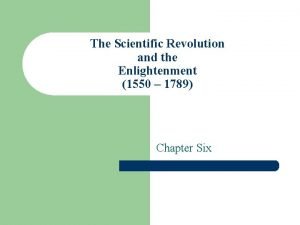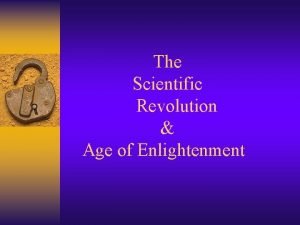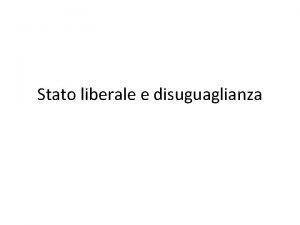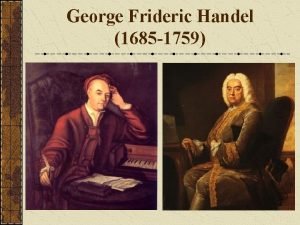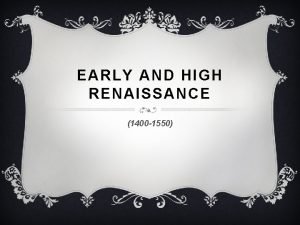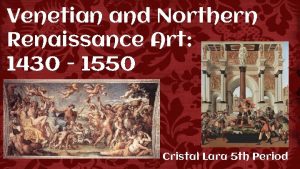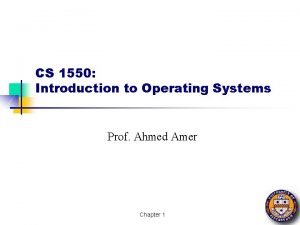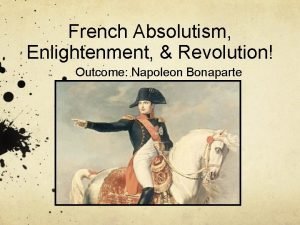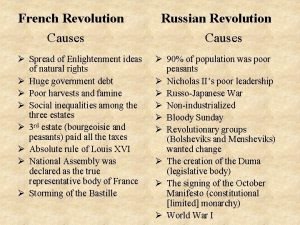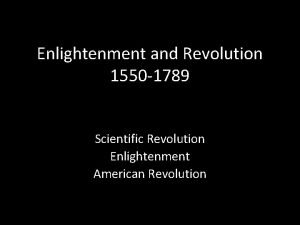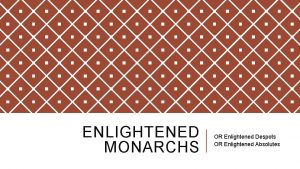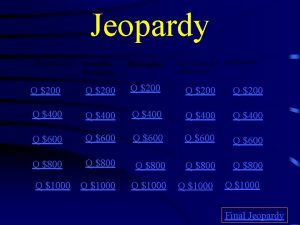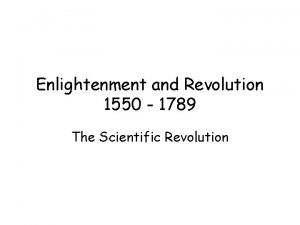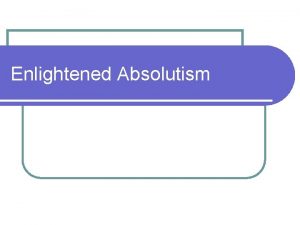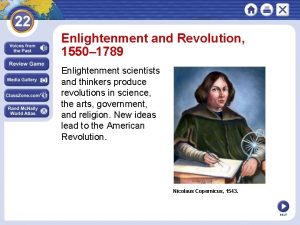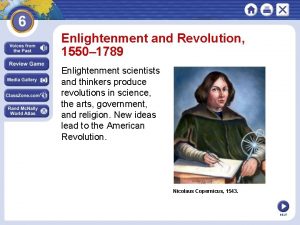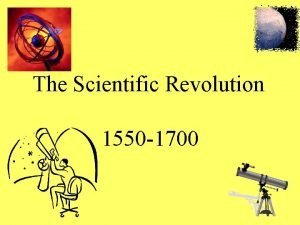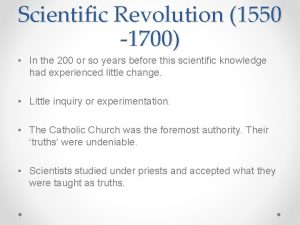Scientific Revolution 1550 1700 Enlightenment 1685 1815 Enlightened
















- Slides: 16

Scientific Revolution: 1550 -1700 Enlightenment: 1685 -1815 Enlightened Rulers: 1700 s Revolutions: 1770 -1780 s

IMPACT OF THE SCIENTIFIC REVOLUTION

• Intellectuals and philosophers used ideas of the Scientific Revolution, such as reason and the scientific method, to reform society.

THE ENLIGHTENMENT EMERGES

• Newton, Locke, Montesquieu, Voltaire, Diderot, and • Rousseau used reason and logic to influence European political life in the 1700 s. They believed in natural rights for all people. • Natural Rights: • Life • Liberty • Happiness • Property

Preserving Enlightenment Ideas • New Enlightenment ideas need a new governmental system to establish and preserve these natural rights. • For this, the philosophes wanted an Enlightened Ruler.

THE LEGACY OF THE ENLIGHTENMENT

• Revolutions begun in America in 1776. • Continued in Amsterdam, Brussels, and especially in Paris in the late 1780 s. • This put every Western government on the defensive.

• Established materialistic tradition based on an ethical system derived solely from a naturalistic account of the human condition (the “Religion of Nature”). • Theoretically endowed (smarter) with full rights, the individual had come into existence as a political and social force to be reckoned with.

THE ENLIGHTENMENT + ABSOLUTISM = ENLIGHTENED ABSOLUTISM

Enlightened Rulers • Enlightened rulers allowed: • religious toleration • freedom of speech • right to private property. • Above all, they obey the laws and enforce them fairly for all • These rulers governed using Enlightenment ideas while maintaining their royal power. This is known as enlightened absolutism.

Enlightened Rulers • 3 rulers were faced with the dilemma of being absolute rulers during Enlightenment. • Frederick II – Prussia • Joseph II - Austria • Catherine the Great – Russia

Frederick II of Prussia • Prussia (northern Germany), • Frederick II (also called Frederick the Great) made minimal changes to society. Implemented Enlightenment reforms: • abolishing torture • freedom of press/speech • religious freedom • Did not abolish serfdom (slavery), and kept Prussia’s pyramid-like social structure.

Joseph II of Austria • Joseph II more open to Enlightenment reforms: • “I have made Philosophy the lawmaker of my empire. ” • Abolished serfdom • eliminated the death penalty • established equality before the law • religious tolerant policies. • Ultimately, his reform efforts made enemies with the nobility and the church.

Catherine the Great of Russia • Catherine came to power in 1762 • • • after husband, Peter III, was murdered. She agreed with the Enlightenment ideas of the philosophes, but her success as queen required the support of the Russian nobles. Due to this, her policies favored the nobles and not Enlightenment reforms like abolishing serfdom or instituting equality before the law. As a result, her legacy is the expansion of Russian territory, not Enlightenment ideas.

The Seven Years War • • • Frederick’s refusal to return Silesia to Austria and Maria Theresa’s (Ruler of Austria) unwillingness to accept its loss of the Austrian Succession war resulted in – The Seven Years War took place in N. America, India and Europe. France, Austria and Russia vs. Great Britain and Prussia Britain defeated France in North America and India, France was forced to give up its colonies in these areas. British now control most of N. America and India Prussia now controls what would become Germany (leftovers of Roman Empire) Holy
 Newton's first law of motion
Newton's first law of motion Enlightenment vs scientific revolution
Enlightenment vs scientific revolution Scientific revolution and enlightenment speed dating
Scientific revolution and enlightenment speed dating Scientific revolution and enlightenment venn diagram
Scientific revolution and enlightenment venn diagram 1685 1750
1685 1750 1759-1685
1759-1685 Code noir 1685
Code noir 1685 George frideric handel (1685-1759)
George frideric handel (1685-1759) Renaissance art vocabulary
Renaissance art vocabulary Venetian and northern renaissance (1430–1550)
Venetian and northern renaissance (1430–1550) Cs 1550
Cs 1550 Tlm 1550
Tlm 1550 Alquimia. (300 antes de c a 1500 después de c).
Alquimia. (300 antes de c a 1500 después de c). French absolutism enlightenment & revolution
French absolutism enlightenment & revolution French absolutism enlightenment & revolution
French absolutism enlightenment & revolution French absolutism enlightenment & revolution
French absolutism enlightenment & revolution Enlightenment ideas
Enlightenment ideas
